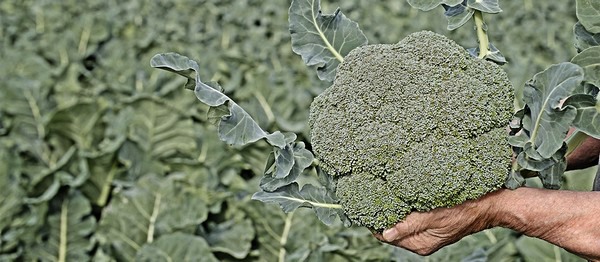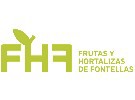The broccoli campaign came to a close in the Spanish region of Navarre a few weeks ago. "The winter season runs from October to the end of March, and the summer season ends in June, but this year's campaign has been almost symbolic," says Sara Oliver, of FHF. “While in winter we planted 150 hectares, in spring we have greatly reduced the acreage and only planted 15 because of the many problems caused by drought. In fact, we usually have all the contracts closed at this time, but for the winter campaign we haven't yet been able to do it because we don't have a clear planting forecast due to the lack of water."
Diego Orta, owner of FHF.
"In the beginning we were told that we would have enough water for the whole of August, and the latest we've heard is that we will only have water until the middle of the month. We get water from several irrigation canals that are fed by the Ebro and the Moncayo, but this year's reserves are not the same (in the Moncayo it has not even snowed), and the consumption estimations are being updated almost weekly. So, even though we have bought seeds for the nurseries, we are still pondering whether we will be able to plant them, or the production will need to be reduced.
"It's going to be a difficult winter season for the industry"
Broccoli consumption has increased significantly in recent years and the product is currently consumed all year round; however, this year the market has been hampered by fluctuations in the supply due to the problems faced by growers in the south, mainly in Murcia, where temperatures took a toll on the planning and caused an accumulation of produce and lower prices in the fall, as well as shortages in December, January and February.

FHF's production, like that of many other fruit and vegetable companies in the region, is highly oriented towards the industry, which has achieved a very significant degree of development in the Navarre area. "In fact, 60% of the broccoli we harvest goes to the freezing industry, and only 40% is sold as fresh produce. The product is mainly intended for the domestic market, although we also export a bit to Portugal and France," says Sara.
However, this year the weather is severely affecting the supply of raw materials for this sector which, in addition to being an interesting source of vegetable products for consumers (according to a study by the Spanish Association of Frozen Vegetable Manufacturers (ASEVEC), 6 out of 10 Spaniards eat frozen vegetables at least 3 times a week), is an important generator of local employment.
"It is true that the weather is uncontrollable, but it is also true that more could be done to prevent water shortages. Now we see that we need larger reservoirs or canals with greater capacity. We shouldn't have to deal with floods when it rains; the Ebro overflows and it floods the fields, and we have no way of storing that water for times of scarcity. If the irrigation communities were to build irrigation reservoirs, we could avoid such situations."
"Producers will have no problem selling their crops, because the demand is there," says Sara, but "the freezing industry in the area will have no guaranteed supply, and may even be forced to look for alternatives. They are desperate to buy, but few will risk signing contracts. For now, it looks like we'll have a difficult winter season."
 For more information:
For more information:
FHF
Avda. Navarra 70
31512 Fontellas, Navarre, Spain
Tel.: +34 948 825 916
info@fhfontellas.com
https://fhfontellas.com
